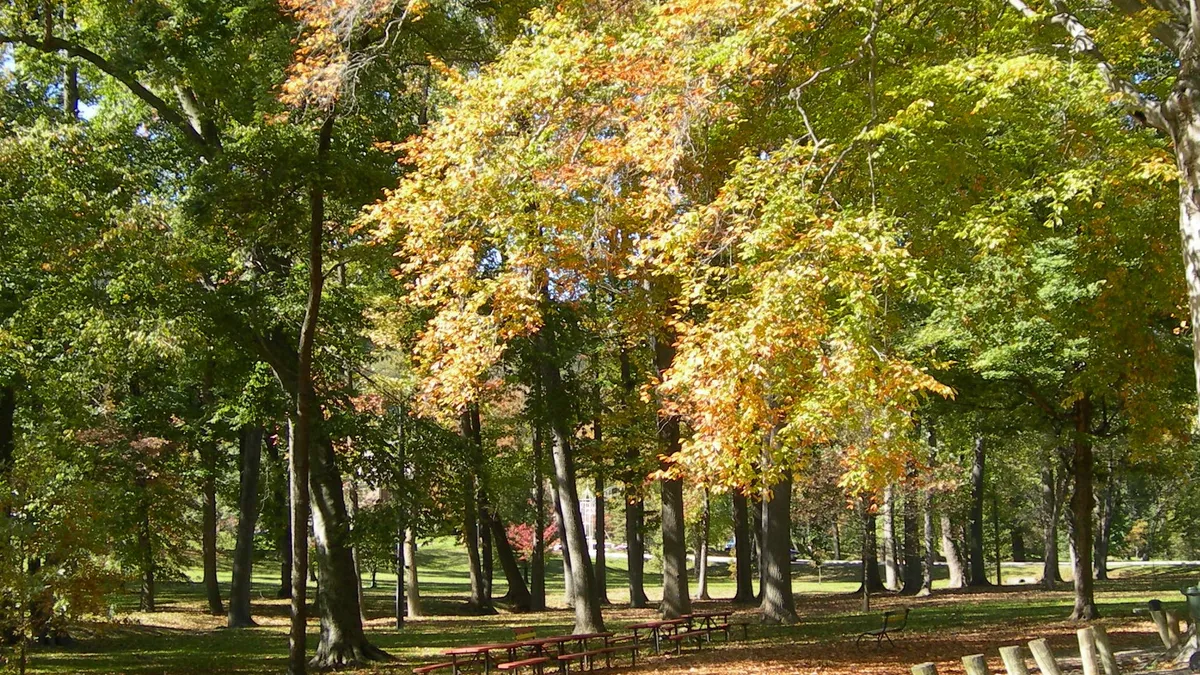Dive Brief:
- The $14.5 million Green Heart project has launched in Louisville through a partnership of the Institute for Healthy Air, Water and Soil, the University of Louisville, The Nature Conservancy and others. It will study the connection between urban green space and human health.
- Up to 8,000 trees and plants, along with air monitoring devices, will be added to four neighborhoods. Researchers will then track air quality and the health of 700 residents in those areas for five years.
- The researchers will primarily examine residents' physical health, such as diabetes and heart disease risk, but they will also look at changes in aspects of mental health, such as stress and depression.
Dive Insight:
Trees act like air pollution sponges, sucking up pollutants such as carbon dioxide and releasing oxygen as part of their respiration process. While it is believed that trees are beneficial to human health, little research has been performed about the long-term effect of adding vegetation to areas that do not have much of it. The Nature Conservancy did release a report this fall about the return on investment of urban greening, especially as it relates to mental health, but it did not provide the in-depth data that the Green Heart project aims to collect.
Louisville's position as one of the more polluted U.S. cities makes it a good choice for the greening program. This year, the American Lung Association's State of the Air report ranked Louisville as the 13th most polluted city in America in regards to particle pollution. Like other cities such as Los Angeles or Salt Lake City, Louisville's geography plays a role in its pollution woes; the city sits in a valley where pollution can get trapped, especially on hot days. The city has made some progress with curbing smog due to regulations on auto emissions and, perhaps more importantly, cracking down on its problems with industrial pollution. For example, scrubbers have been added to the smoke stacks of its two coal-fired power plants.
The scientist who spearheaded the Green Heart project believes that trees might be as beneficial to humans' cardiovascular health as statin drugs. In addition, researchers believe that perhaps creating green spaces will encourage more residents to go outside to exercise and have social interactions. That could have a positive impact on mental health by creating social ties and lessening isolation and depression.
If the report concludes that vegetation does help humans' physical and mental health, cities could take on greening projects as a low-cost, drug-free way to improve citizens' lives while also benefiting the environment.












